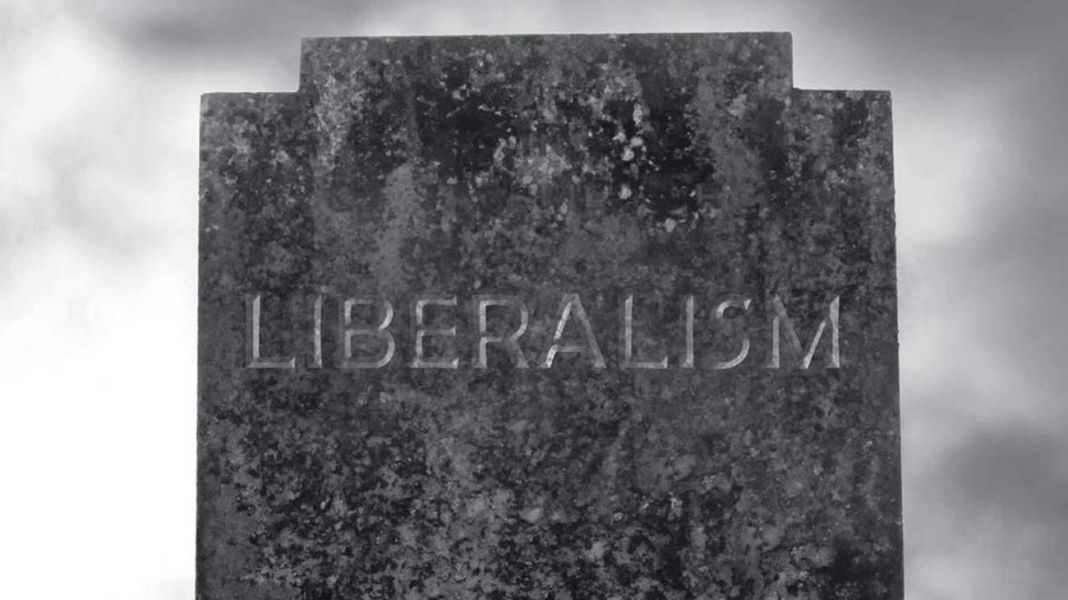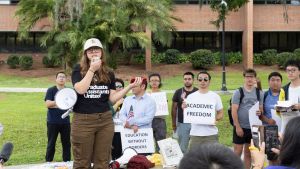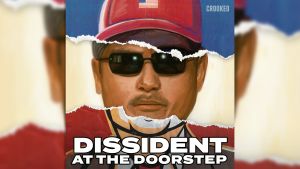
Illiberal China: A Conversation with Daniel Vukovich
Over the past decade, Western depictions of China have either held up the country’s political culture as a model or demonised it as a danger to liberal societies. But how do mainland politics and discourses challenge ‘our’ own, chiefly liberal and anti-‘statist’ political frameworks? To what extent is China paradoxically intertwined with a liberal economism? How can one understand its general refusal of liberalism, as well as its frequent, direct responses to electoral democracy, universalism, Western media, and other normative forces? These and other questions are at the core of Daniel Vukovich’s latest book, Illiberal China: The Ideological Challenge of the People’s Republic of China (Palgrave Macmillan 2019).
Christian Sorace: In your book, you argue that the People’s Republic of China ‘takes the power of ideas, policies, and ideologies far more seriously than other “normal” or “free” societies’. And that this not only explains why the state often overreacts and censors, but also why politics is more alive there than it is in places where speech may be guaranteed but entirely ignored as a matter of private opinion. Can you explain why this is the case and the consequences this has for how one should approach the study of China?
Daniel Vukovich: It must have a number of roots (e.g. a long tradition of moralism), but I would also index the seriousness attributed to political speech and ideology within the Marxist-Leninist-Maoist tradition, which after all does say that ‘theory as well as its absence’ can be motor forces in history when seized upon by the masses (or by a big enough chunk of the populace or power-elite). Think of all those academics, researchers, and think tanks who—gasp!—want to be read by, and do research for, ‘the state’; and some are indeed used. So speech and ideas matter, beyond the obvious fact that the Party-state believes in the projects of propaganda and censorship. If you, the individual or citizen, the intellectual or worker or protestor, as well as your state/system believe in this power of words and ideas, then there are some real stakes involved. The state responds, too often repressively to be sure—increasingly so under Xi—but also productively and more positively in many instances. Can we adapt a line from The Wire and say ‘the game is the game’? But it is not one for cowards.
As for consequences, it means we should not merely debunk citizens who use what some deride as ‘Maospeak’, or who ‘righteously’ appeal to their own state for redress, or who take official Marxism or national propaganda seriously, or who are into ‘essentialist’ traditions (e.g. Confucianism, ethnic fashion) and so on. We can assume they, the people we are writing about and whom we are supposed to be answerable to, do not care about ‘our’ a priori distinctions between official/unofficial, and so on. We can take a break from the search for a hidden civil society/public sphere along the lines of some pure/fantastic European model, and instead ponder the one China has in its own positivity. What if politics is not about individual rights or (negative) freedoms but something more collective, general, or material? Liberalism is just one form that politics or intellectual-political culture can take, a form that is mostly absent from the People’s Republic of China (PRC). The historical ‘rejection’ of liberalism offers some resources for hope about a return to statist politics and the primacy of economics and ‘livelihood’. If a state’s legitimacy turns on these things—or can better do so—then that is a good thing.
CS: You argue that part of what drives the anti-China sentiment that is pervasive in the West is the fear of a strong state, and you show how this anti-statism cuts across the political spectrum from neoliberal doctrine to the anarchistic/libertarian tendencies in Foucault. But how does China challenge, rather than play into, such a deeply engrained anti-statist framework?
DV: In part just by its persistence, and its success—the Party line about ‘lifting hundreds of millions out of poverty’ since the 1980s is propaganda and tendentious, but it is also a truth. The state-owned enterprises, all those jobs and the state control of those sectors of the economy, are an obvious, anti-neoliberal case in point.. The state has been willing to tolerate their inefficiencies in some cases, just as it can tolerate the ‘ghost cities’ when they occur. These market-planning failures have not mattered because they are explicable by the scale of the planning, and because the Party-state draws on a different, ‘illiberal’ logic. The ‘commanding heights of the economy’—i.e. ambitious macro planning—are still achieved through the huge party apparatus. In the rush to demonise the state, there has not been adequate critical appreciation of the rationality and justness of planning and command.
One of the New Left’s most salient points is that there is too little state in China, if the goal is, as it should be, to move the system towards social democracy, what with revolution being off the table (and having already happened). We have to think through the legitimacy of the so-called statist system—it would be an exaggeration though not wrong to say the state is everywhere and involved in everything. But if this same system is legitimate or consistently achieves consent (or assent) then the anti-statist doxa is wrong and mostly useless. Unless you want to claim that the majority are brainwashed or irrational. Most people do not hate the state in China, or elsewhere. The PRC reminds us that the state is the very terrain of politics and the political, and something that you cannot not want.
CS: You dedicate two chapters of the book to the 2014 Umbrella Protests in Hong Kong and the 2011 Wukan Uprising in Guangdong. What are the main political differences between these two movements?
DV: The short answer would be the liberalism and occidentalism of Hong Kong , as well as an uninterrogated faith in procedural democracy within the ‘opposition’. In contrast, Wukan represented a more pragmatic, economic, and greater social-justice orientation movement. Wukan was more ‘statist’, drawing on the tradition of a righteous/rightful resistance, and resulted in new elections, at least a partial restoration of land and resources, and more recognition from the government. There can be a progressive and not just a reactionary illiberalism. Wukan illustrated both, in the end—a radically ‘democratic’ and then intolerant state when the protesters returned years later again to challenge the old land theft issues. Hong Kong’s movement resulted in nothing practical and if anything has set back political-electoral reform for years. It became depoliticised due to zealous attachment to an ideal of autonomy and the ‘real’ meaning of the Basic Law. But it is/was significant as a semiotic or imaginary movement (not false but imagined), a welcome eruption of protest and participation, and a dénouement of the 1980s liberal-democracy movement. Hong Kong people (like everyone else) are practical and will find a way to make demands over the terms of integration and consent, rather than decrying a loss of autonomy in what is historically a Thatcher-esque, laissez-faire ‘society’.
Elections are nice, but neither the main enemy nor saviour. That is the lesson from both protests: total commodification—via ‘free’ markets and property speculation—of the countryside, or of the city, is what needs to be confronted. Otherwise both places will become unliveable. It will take more protest, not less, but ones aimed at inclusion- or state-action, not at autonomy or individual liberty. The main issue should be political economy.
Despite its flaws, China under Mao provided inspiration to anti-imperial, anti-colonial, and anti-racist struggles throughout the world. In the book, you praise today’s China for its willingness to exert its ‘difference’ and ‘exercise its voice’. While this made sense as a description of Mao’s foreign policy, does it still hold true today? In light of China’s promotion of ‘economic globalisation’ and controversial investments abroad, can China really be said to offer an ‘anti-imperial’ position today?
Belt and Road, China in Africa, and so on, follow Adam Smith far more than Mao. The break is clear. Yet China offers better business deals than say the World Bank or the United States with their ‘extra’ demands. That’s not anti-imperialist, but it seems more fair and even ‘liberal’ in a good way. All these projects and loans have yet to play out in real time, so it is a stretch to claim they reveal Chinese imperialism and colonialism, as opposed to a ‘consensual’ capitalism and/or investment.
If despite its flaws the Soviet Union’s presence in the world system was good for, say, Palestine, then can China’s rise be good today for other places? It is an open question at any rate. China will resist US hegemony, and act according to its own, perceived self-interest. This can lead to imperialistic bullying (in the south Pacific) but also to opportunities for others to productively triangulate their relationship with the United States and the West. Others, even common people, can benefit from the Chinese economy, and China’s approach to trade at least holds the possibility of less dictatorial relations within the global system.
As for difference and voice—more my actual concern in the book—the rise of New Left discourse and other forms of ‘knowledge power’ are happening. These take many forms, for example neo-Confucianism; the booming academic sphere with its own protocols and publications; the official and unofficial anti-liberalisms and anti-universalisms; and what is often called the growing ‘cultural awareness’ and ‘confidence’ of the people and the state. These phenomena are often disparaged as mere nationalism, but they all point to a certain ‘writing back’ to the dominant liberalisms and from universalist codings of politics, economics, and culture. I am not arguing this is all anti-imperialist in some radical, left-wing sense; but it is a countermovement against (Western) universalism and ‘our’ political norms and values.
Let’s see what flows from this, as politics and thinking continue to change in China and elsewhere in our bleak, bleak times. The state is going to have to be a major, renewed concern, and made to triumph over the market and capital (it has never stopped being a central concern on the mainland but even liberal economism is reaching its limits). Liberalism is a degraded failure, politically and intellectually. It does not even explain Chinese dissidence. The planet is in crisis. The commons (their theft), the communist horizon, the general intellect and will—these things are back on the (theoretical) agenda.





